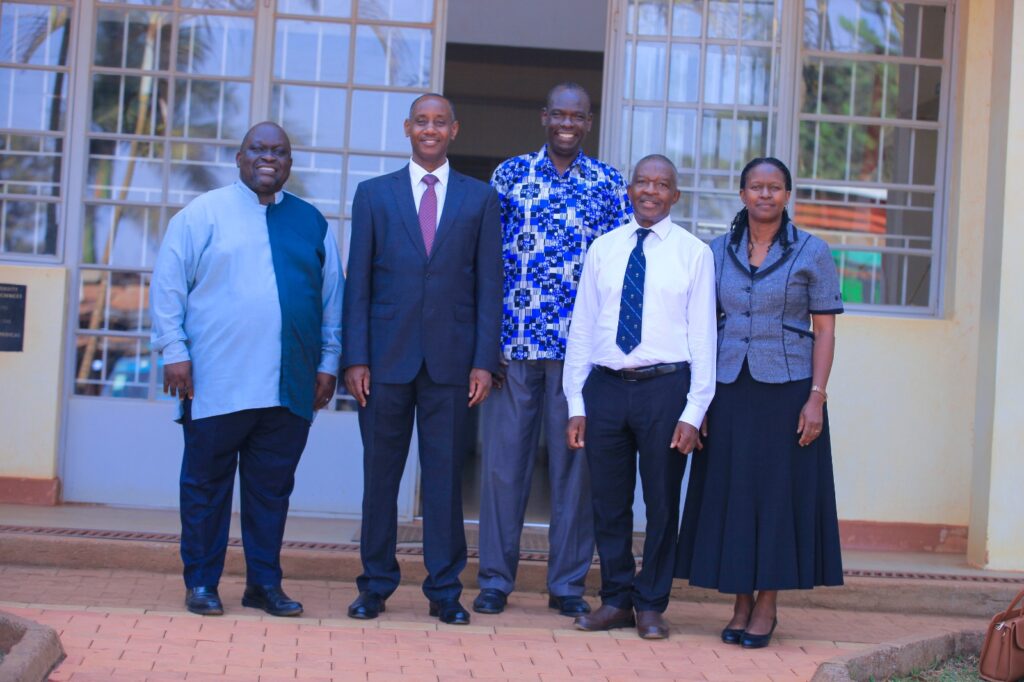By Andrew Bugembe
Prof. Aaron Mushengyezi, the Uganda Christian University (UCU) Vice Chancellor, has called on students of the Master of Arts in Organisational Leadership (MAOL) programme to embrace a model of leadership rooted in Christian values, integrity, and service to the common good.
Speaking to the postgraduate class at the university’s main campus in Mukono, Prof. Mushengyezi said Uganda’s greatest challenges stem not from a shortage of resources but from weak systems, inefficiencies, and poor attitudes in public service delivery.
Mushengyezi noted that many offices, from licensing to electricity and water distribution, continue to operate below standard because of a lack of accountability and transformational leadership.
“Leadership must go beyond positions and self-interest,” the Vice Chancellor told the students. “It should be a calling from God—mission-driven, credible, and focused on leaving institutions better than we found them.”
He explained that in society, leaders often fall into three broad categories. Some are driven by titles and privileges, caring more about the power of their office than the impact of their service.
Others approach leadership with an “I don’t care” attitude, seeking personal gain at the expense of institutional growth.
The kind of leaders Uganda and the world need most, he emphasized, are those who see leadership as a divine calling to transform society. Such leaders build credibility, inspire trust, and measure their success through practical results rather than personal rewards.
Prof. Mushengyezi went on to highlight the principles of transformational leadership, urging students to model integrity by walking the talk, to form coalitions of the willing instead of waiting for skeptics, and to take time to study problems deeply before proposing solutions.
He added that genuine transformation at UCU and beyond should reflect God’s glory through clean, orderly, and peaceful environments that inspire confidence and point others to Christ.
Turning to the progress at UCU, the Vice Chancellor cited recent improvements in facilities, learning environments, and postgraduate programs.
He also praised the university’s resilience in adopting online learning during the COVID-19 pandemic and pointed to the far-reaching influence of the MAOL program, whose alumni include bishops, professors, and institutional leaders across the country and region.
The MAOL program itself, Prof. Mushengyezi explained, is designed for busy Christian leaders who balance their studies with demanding responsibilities.
Housed under UCU’s School of Business, the program runs on a blended model. Students gather for a five-day, face-to-face session each semester before continuing their coursework remotely through Moodle and other platforms.
They engage in monthly assignments, discussions, presentations, and culminate their semester with a final project.
The program is offered in partnership with Development Associates International (DAI), which supports the recruitment of experienced facilitators from around the world, including Canada, the USA, Nigeria, Kenya, and Uganda. It is currently run in more than 15 countries, creating opportunities for rich cultural exchange and knowledge-sharing.
Currently, the program is being overseen by Dr. Joseph Owor, UCU’s Head of Graduate Studies, who is serving as acting coordinator. Dr. Owor said his role is to ensure that students, many of whom are high-profile leaders, receive the logistical support they need, from registration and banking assistance to classroom equipment, allowing them to focus entirely on learning and leadership development.


